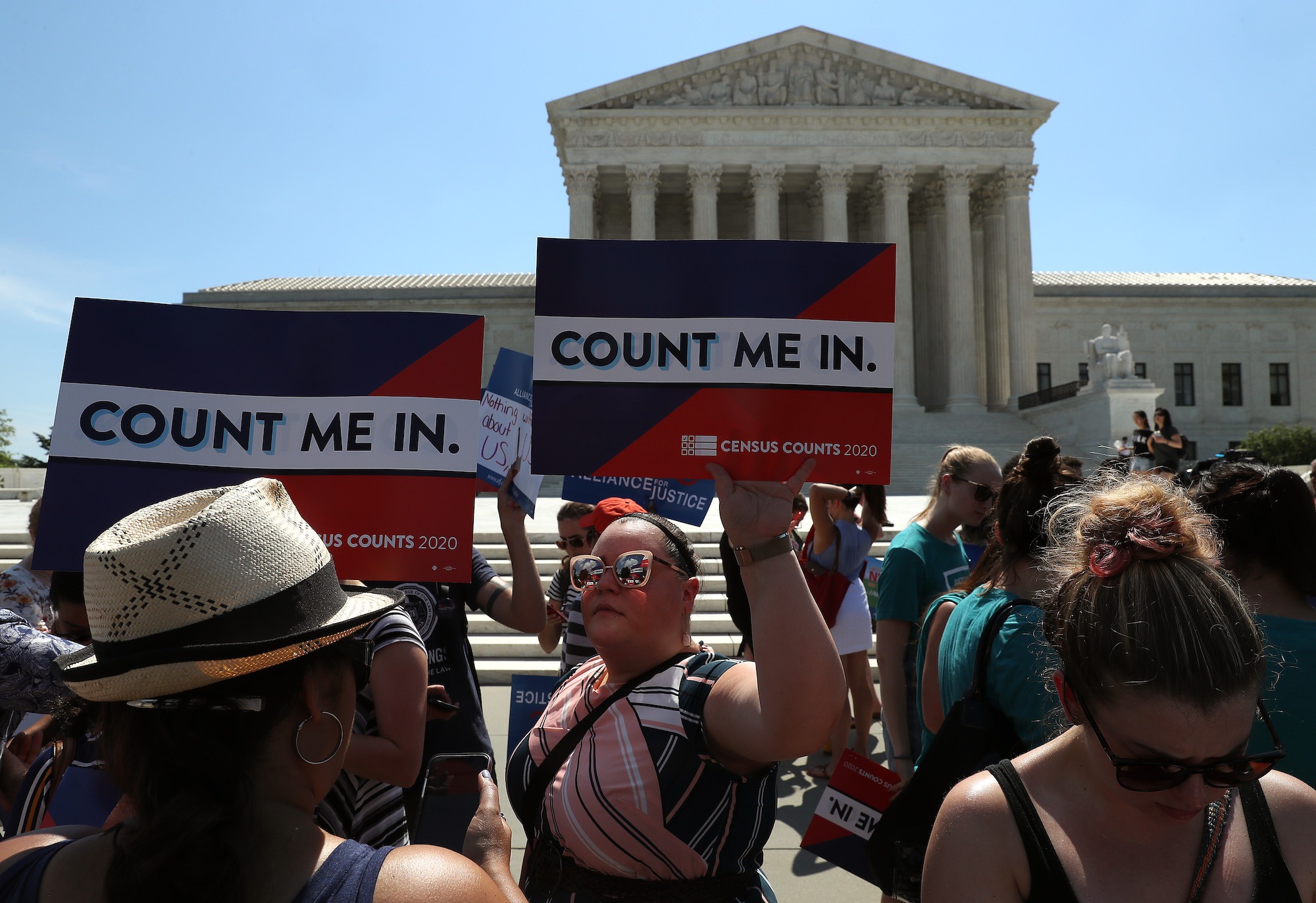Spotlight: The Citizenship Question, the Supreme Court, and Who Deserves a Do-Over
What if Justice Roberts gave criminal defendants do-overs like he did for the Trump administration?

 |
The Supreme Court decision that came down yesterday, summarized in the tweet above, is the same decision that the New York Times editorial board called “a win for good government.” In the short term, that’s true. The Court yesterday refused to green-light the Trump administration’s plan to add a citizenship question to the 2020 census form. Experts have warned that adding the question would result in a significant undercount of households with at least one noncitizen member, and a shift of power and resources away from communities with high foreign-born populations. But in the majority’s ruling, Chief Justice John Roberts isn’t troubled by that. He called it “reasonable.”
Commerce Secretary Wilbur Ross had sworn before Congress that he decided to add the question “solely” in response to a Justice Department request for data to help it enforce the Voting Rights Act (a law that, incidentally, Roberts gutted in a 2013 majority opinion). But looking at the evidence, Roberts found that “the V.R.A. played an insignificant role in the decision-making process.” It was a pretext for an action that a Republican strategist (who has been described as the “Michelangelo of gerrymandering”) suggested would “be advantageous to Republicans and non-Hispanic whites.” It is hard to imagine clearer evidence of an effort to deprive people of color of democratic power and equality.
But Roberts didn’t find that deprivation itself was a problem. “We do not hold that the agency decision here was substantively invalid,” Roberts wrote. “But agencies must pursue their goals reasonably,” which, in this case, “calls for an explanation for agency action.” It seemed at times Roberts wished he knew less about the government’s intent: “It is rare to review a record as extensive as the one before us when evaluating informal agency action—and it should be,” Roberts wrote. But “we cannot ignore the disconnect between the decision made and the explanation given.”
Roberts’s predicament in this case echoes his position when evaluating Trump’s travel ban last year, which he and the Court were inclined to uphold as perfectly legitimate, not motivated by religious hostility, if only it could get past Trump’s statements to the contrary, which it did. (The text of the order, Roberts noted, “says nothing about religion.”)
The tradition of allowing the government to discriminate as long as it can think up a good excuse extends to the courtroom. It’s what allows prosecutors to strike people of color from juries so long as they can think of a good enough reason for it. In the rare cases when they can’t, as happened multiple times to the prosecutor in the Curtis Flowers case that the Daily Appeal discussed yesterday, they are simply given a do-over. The prosecutor in Flowers’s case has received several such do-overs, and is running unopposed for an eighth term this year.
What if we handled criminal cases this way? Let’s say a man is accused of killing his wife. Let’s say there’s no question that he killed her, and he has already told police that he did it because she was having an affair. At trial, the judge leans over and tells the defendant, “Look, we’re all fine with this outcome, but killing someone for that reason just isn’t legal. If you could somehow come up with another reason, though, maybe we can work something out.” The defendant, if he’s rational, would come back and say “OK, judge, I acted in self-defense.” Case closed.
Criminal trials never go this way (with the possible exception of cases where police are accused of killing civilians). Ordinary criminal cases are more akin to what happened on the show “Seinfeld” when Jerry tried to return a suit “for spite.” An employee tells him that “spite doesn’t fit into any of our conditions for a refund,” so Jerry chooses a different rationale. But the manager is not persuaded: “No, you said spite. Too late.”
That is because in our system, criminal liability is based on “just deserts” (people “deserve” a penalty because they have committed wrongs) and deterrence (punishing certain behavior can prevent it). By both of those standards, killing in anger is a crime, and killing in self-defense is not.
When the government discriminates in these contexts, its intent is theoretically scrutinized, but the bar is so low that “just deserts” and deterrence are irrelevant. Which is to say, we don’t even try to say that government actors deserve punishment for this kind of wrongdoing, and we certainly create no incentives that would deter similar conduct in the future. (Wilbur Ross is still commerce secretary, after all.)
And even if the scrutiny of governmental intent weren’t entirely toothless, it would still be misguided. This is because, in criminal cases, society is trying to redress past wrongs, but when reviewing government actions, the potential harm is generally in the future. Actual people will suffer if the census question is allowed, regardless of the government’s intent. Maybe, in both contexts, it’s time to consider standards that actually minimize harm, such as disparate impact for the government, and restorative justice in criminal cases.
When reformers argue that our criminal system is cruel and does not create a safer or more equitable society, opponents often respond by saying none of that matters, because those who run afoul of laws deserve what’s coming to them. Wilbur Ross, on the other hand, apparently he should get a do-over.
This Spotlight originally appeared in The Daily Appeal newsletter. Subscribe here.
